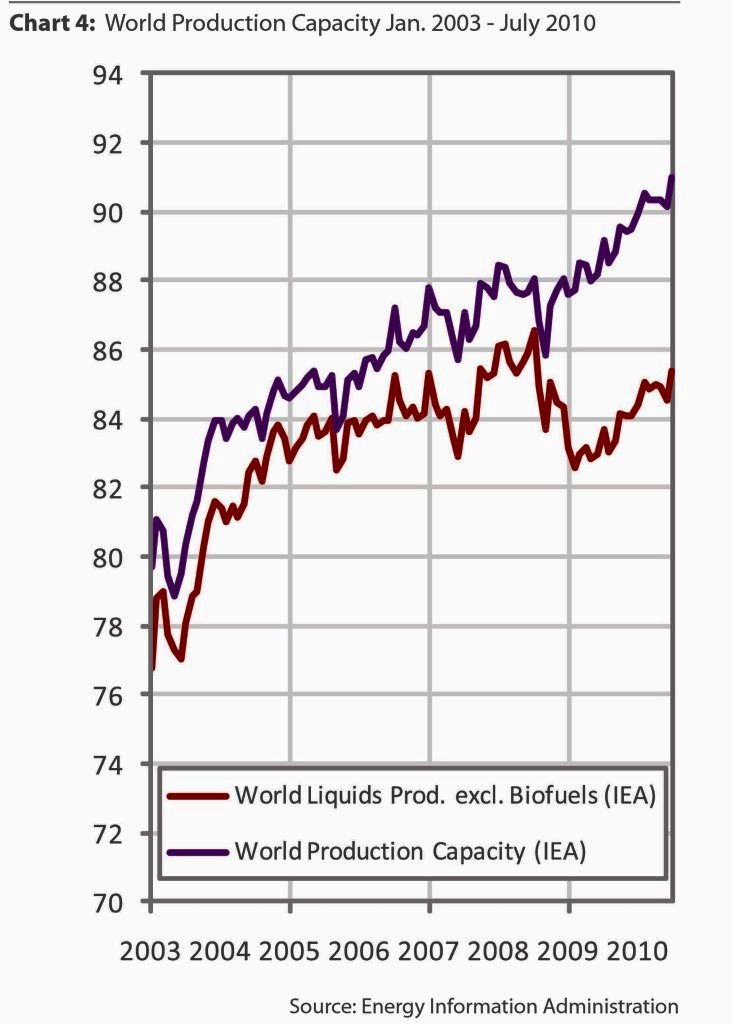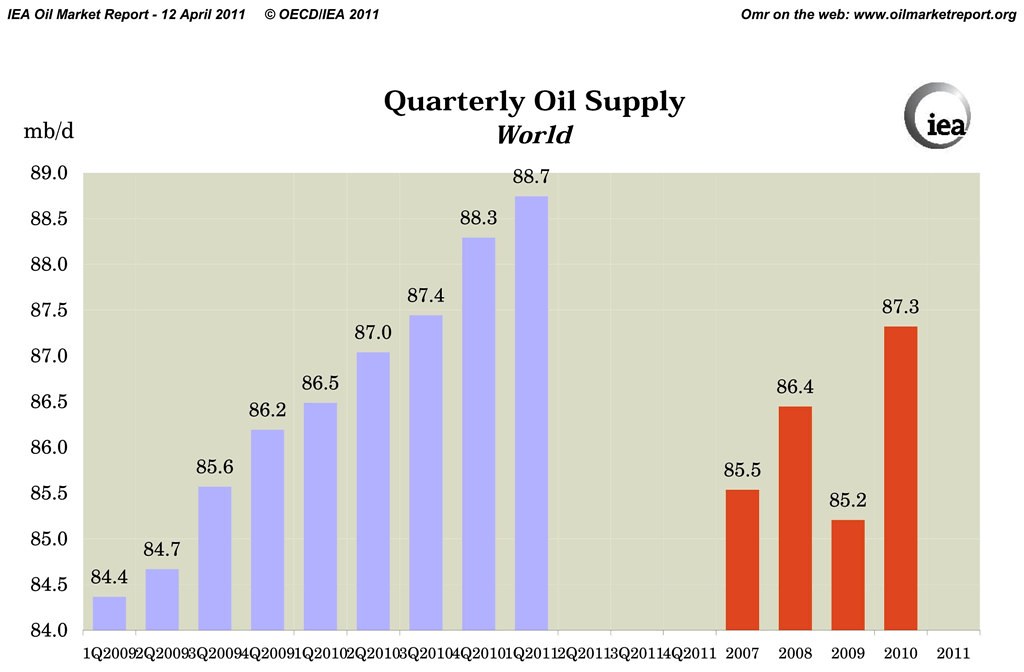Quote:
Originally Posted by censusdata

Is case anyone has noticed... after 90 years of gasoline of gasoline being under $1 a gallon we are now happy when it is below $3!! Geologists tell us that no matter how much we drill or mine there is no way to bring prices back down.
So which areas to live? To some extent you could say the places doing good before the oil economy started 100 years ago would be fine -> river/ coastal cities in regions with good farmland. An aestrick on that would be that in 1859 no one had experienced the luxuries of an oil economy. As people's standards of living decline with their former luxuries in their memories most people expect massive amounts of violence over resources (both locally and on a global scale).
Anyway, there are lots of places which should thrive. I'll be a homer vote for Kentucky because we have (FOOD/ BIO FUEL) great land (KY was the ag powerhouse of America pre 1860), we have lots of streams and rivers (WATER), lots of cities built along the Ohio River that could again become industrial powers (JOBS) as shipping from China is no longer economical and we have lots of people that still know how to live a traditional lifestyle (lots of Amish, also Rednecks). (KNOWLEDGE OF PRE OIL SURVIVAL TECHNIQUES)
As the world runs out of cheap fossil fuels and the economy built around it starts to desegregate, which places would you want to be living?
|
Your entire premis is wacked. First it is more fuel efficient to order stuff from China online & have it delivered to your door. A Chinese worker lives in a dorm at their work place. The average China worker consumes less than 2 barrels of oil per year to live & make products for Americans. The average American consumes over 20 barrels of oil per year to live & make products. It is 10 times more fuel efficient to make products in China & ship them to American homes than it is for Americans to go to work & go shopping to buy their own goods.
- A ocean cargo ship gets over 1,100 net freight ton miles per gallon.
- A barge gets 575 net freight ton miles per gallon.
- A train gets 425 net freight ton miles per gallon.
- A semi truck gets 170 net freight ton miles per gallon.
- A UPS delivery truck gets 15 net freight ton miles per gallon.
- A Jet plane gets 7 net freight ton miles per gallon.
- Fully loaded both ways a 1/2 ton pick-up truck gets 9 net freight ton miles per gallon.
- An average 20-lbs of goods per car trip to the store empty one way gets 0.125 net freight ton miles per gallon.
Second There is currently no "Peak Oil" & we are not in immediate danger of it. Inaccurate warnings from "experts" on "Peak Oil" could fill a thousand pages easily.
- “I take this opportunity to express my opinion in the strongest terms, that the amazing exhibition of oil which has characterized the last twenty, and will probably characterize the next ten or twenty years, is nevertheless, not only geologically but historically, a temporary and vanishing phenomenon – one which young men will live to see come to its natural end” (1886, J.P. Lesley, state geologist of Pennsylvania).
- “There is little or no chance for more oil in California” (1886, U.S. Geological Survey).
- “There is little or no chance for more oil in Kansas and Texas” (1891, U.S. Geological Survey).
- “Total future production limit of 5.7 billion barrels of oil, perhaps a ten-year supply” (1914, U.S. Bureau of Mines).
- "Within the next two to five years the oil fields of this country will reach their maximum production, and from that time on we will face an ever-increasing decline." (1919 director of the U.S. Bureau of Mines)
- "Oil shales in Colorado and Utah would be exploited to produce oil, because the demand for oil could not be met by existing production." (1919 National Geographic magazine)
- "The time is, indeed, well in sight, when the United States will be nearing the end of some of its available stocks of raw materials on which her industrial supremacy has been largely built. America is running through her stores of domestic oil and is obliged to look abroad for future reserves. (September 1919, E. Mackay Edgar, in Sperling's Journal)
- "The position of the United States in regard to oil can best be characterized as precarious." (January 1920 Dr. George Otis Smith, Director of the United States Geological Survey)
- "Americans will have to depend on foreign sources or use less oil, or perhaps both." (May 1920 Dr. George Otis Smith, Director of the United States Geological Survey)
- "On the whole, therefore, we must expect that, unless our consumption is checked, we shall by 1925 be dependent on foreign oil fields to the extent of 150,000,000 barrels and possibly as much as 200,000,000 of crude each year, except insofar as the situation may at that time, perhaps, be helped to a slight extent by shale oil. Add to this probability that within 5 years--perhaps 3 years only--our domestic production will begin to fall off with increasing rapidity, due to the exhaustion of our reserves" (1920 David White, United States Geological Survey)
- During the period 1919-22, imports of crude oil from Mexico had been large--equal to 22 percent of total United States consumption in 1921. But salt water began to appear in some Mexican wells, and by 1921 geologists were debating whether Mexican production was not "through." in commenting upon the Mexican situation. "A great slump in Mexican production seems sooner or later inevitable. Thus there was not only alarm about the United States oil potential but also about our primary foreign source of supply. Lendling encouragement to these doubts were statements appearing in foreign publications describing the United States oil position." (1921, David White of the United States Geological Survey)
- "Given a resumption of trade and the consequent demand for oil products in, at the most, a year or two, the world will be confronted with an oil shortage such as has never been experienced before. (1921, E. Mackay Edgar)
- “Reserves to last only thirteen years” (1939, Department of the Interior).
- “Reserves to last thirteen years” (1951, Department of the Interior, oil and Gas Division).
- “We could use up all of the proven reserves of oil in the entire world by the end of the next decade” (President Jimmy Carter speaking in 1978 to the entire world).
- “At the present rate of use, it is estimated that coal reserves will last 200 more years. Petroleum may run out in 20 to 30 years, and natural gas may last only another 70 years” (Ralph M. Feather, Merrill textbook Science Connections Annotated Teacher’s Version, 1990, p. 493).
- “At the current rate of consumption, some scientists estimate that the world’s known supplies of oil… will be used up within your lifetime” (1993, The United States and its People).
- “The supply of fossil fuels is being used up at an alarming rate. Governments must help save our fossil fuel supply by passing laws limiting their use” (Merrill/Glenco textbook, Biology, An Everyday Experience, 1992).
"Proven Reserves" are those that can be produced "economically." But the definitions of economical production are constantly changing, as the technology (and the politics eg, Iraq) changes. One interesting example of a big oil find in the midst of "an exhausted field" occurred in Kern County, California. Kern River oil Field was discovered in 1899, and initially it was thought that only 10 percent of its heavy, viscous crude could be recovered. In 1942, after more than four decades of modest production, the field was estimated to still hold 54 million barrels of recoverable oil. As pointed out in 1995 by Morris Adelman, professor emeritus at the Massachusetts Institute of Technology and one of the few remaining energy gurus, “in the next forty-four years, it produced not 54 million barrels but 736 million barrels, and it had another 970 million barrels remaining.” But even this estimate was wrong. In November 2007 U.S. oil giant Chevron announced that cumulative production had reached two billion barrels. Today, Kern River still puts out more than 80,000 barrels per day, and Chevron reckons that the remaining reserves are about 480 million barrels.
World Oil Production is still on the rise.



The falling US dollar & adding 2 billion Asian drivers may very well outstrip the rising oil supply. This is why we will not have any more cheap oil. Indo-China is the new rising economic power & has overtaken the USA as the worlds largest consumer of oil. This will unseat the US dollar as the "Petro Dollar".


 Please register to participate in our discussions with 2 million other members - it's free and quick! Some forums can only be seen by registered members. After you create your account, you'll be able to customize options and access all our 15,000 new posts/day with fewer ads.
Please register to participate in our discussions with 2 million other members - it's free and quick! Some forums can only be seen by registered members. After you create your account, you'll be able to customize options and access all our 15,000 new posts/day with fewer ads.